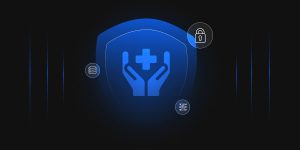Company Overview
This healthcare institution is a well-established provider in the medical sector, offering a broad range of services that include primary care, specialized treatments, and emergency response. It is recognized for its commitment to patient care and medical innovation. The institution houses innovative medical equipment and is staffed by highly trained medical professionals. The institution operates several clinics and hospitals, serving a diverse community focusing on accessibility and comprehensive healthcare.
Despite its many strengths, the institution faces significant challenges in its data protection strategies. It lacks robust mechanisms to safeguard patient data effectively, leaving sensitive information vulnerable to breaches. The absence of advanced encryption practices, insufficient staff training on data privacy, and outdated IT infrastructure contribute to potential risks in data security. These shortcomings threaten patient confidentiality and the institution’s compliance with healthcare regulations like HIPAA (Health Insurance Portability and Accountability Act), which mandates strict standards for protecting health information.
The institution is aware of these vulnerabilities and is evaluating and integrating stronger data protection measures. These include adopting more secure data encryption technologies, comprehensive training programs for all staff on data privacy, and overhauling their IT systems to include more modern and secure solutions. This initiative aims to enhance the trust and safety of their patients and ensure compliance with national and international data protection standards in healthcare.
Challenges
-
Health Information Exchanges
HIEs ( Health Information Exchanges) need to receive and send data to and from doctors, insurance companies, and patients. Securing these transmissions and ensuring that the information is sent using appropriate digital channels can be difficult. This may be fruitful for attackers who intend to steal sensitive information relating to patient data.
-
User Error in Technology Adoption
At times, healthcare professionals may be so busy that they do not have the time to invest properly in learning how their technology works. Other healthcare professionals may not be computer savvy. Regardless of the reasons, it is easy for users to make mistakes as they adapt to new technologies.
-
The Rise of Hacktivism
Hackers or intruders often target healthcare organizations because they are after the sensitive data flowing through the organization or the organization’s money. Those involved with hacktivism may select to hack a healthcare organization just to drive home a particular point. For example, attackers may hack a healthcare organization because they disagree with the hospital’s patient treatment decision.
-
Adoption of Mobile and Cloud Technology
While mobile and cloud technology can make it convenient to manage healthcare IT systems efficiently, they can also present certain security risks. For instance, if a cyber attacker were to steal a doctor’s password or mobile device, they may gain access to a vast payload of sensitive information of the users.
-
Outdated Technology
Much of older technologies have already been breached by cybercriminals. Some healthcare organizations, for instance, are full of outdated technology that is simply too expensive to replace. As older technologies may have vulnerabilities that have not been patched by the most recent security upgrades, outdated technology can be easier for an intruder to penetrate easily.
Solutions
-
Gained an understanding of the sensitive data flow around data management platforms and integrated customer data sources, eliminating the lack of documented data security requirements.
-
Encryption Consulting evaluated existing data control capabilities and identified areas of improvement. This eliminated the lack of regular updates to data classification and handling policies.
-
Encryption Consulting created technical and governance data security requirements applicable to various data platforms, which eliminated the need to review data protection use cases.
-
The organization also developed technical and governance data security requirements for various data platforms, eliminating the lack of a well-defined implementation roadmap for data protection technologies.
Impact
-
Gained an understanding of the sensitive data flow around data management platforms and integrated customer data sources. This documented and consolidated data security requirements.
-
Encryption Consulting evaluated existing data control capabilities and identified areas of improvement. This enabled future implementation roadmap plans for Data Protection technology landscapes.
-
Encryption Consulting created technical and governance data security requirements applicable to various data platforms. This enabled a periodic review process for the data protection framework.
Conclusion
Encryption Consulting’s implementation of enhanced data protection strategies has significantly bolstered this healthcare institution’s security framework. By gaining a comprehensive understanding of sensitive data flows and integrating robust encryption technologies across its data management platforms, the firm has markedly improved its ability to safeguard patient information against potential cyber threats. This strategic overhaul addressed the institution’s previously outdated technology and insufficient data protection mechanisms, leaving patient data vulnerable.
The consultancy’s rigorous evaluation of the institution’s data control capabilities led to vital improvements in data classification and handling policies, ensuring these align with the latest security standards and healthcare regulations like HIPAA. Additionally, creating specific technical and governance requirements has standardized data security practices across various platforms, enhancing overall security posture.
Moreover, developing a well-defined roadmap for implementing data protection technologies has prepared the institution for sustainable security management, enabling periodic reviews and updates to its data protection framework. This proactive approach mitigates the risk of data breaches and unauthorized access and strengthens the trust of patients and partners in the institution’s commitment to data security and patient confidentiality.
In conclusion, Encryption Consulting’s intervention has transformed the institution’s data protection strategy, ensuring a high level of security that supports its mission to provide safe, accessible, and innovative healthcare services.

